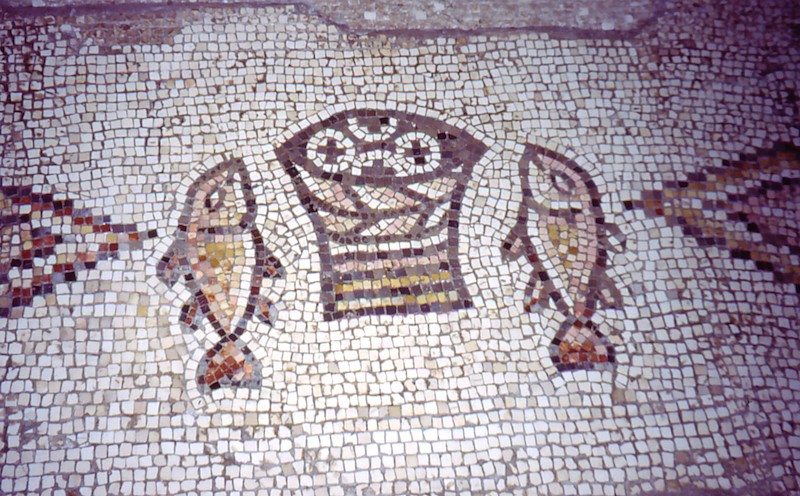I have been meditating upon last Sunday’s lectionary readings for the last several days. One of the things all of our readings last Sunday had in common is jumping into the middle of a story. Our story from the Hebrew scriptures skipped over the majority of the time—thirteen years!—Jacob and his growing family remained in Laban’s household. Suddenly we are presented with Jacob and his two wives, two concubines, and twelve children on the verge of crossing into the Promised Land and confronting Esau. That’s a LOT of missed story—one I recommend you read on your own time. Likewise, Paul is assuring us he is speaking the truth and talks about anguish, but it is not clear why. And then in our gospel, we get an insinuation that Jesus has just heard something that causes him to withdraw for some alone time, but we don’t know why.
What caught my eye in all our readings is the amount of uncertainty that is represented in each of these stories. Jacob fully expects Esau, his estranged brother, to take revenge upon him for stealing his birthright and blessing, and the setting itself of being in between two countries in the middle of the night helps make that feeling of uncertainty more vivid. In our gospel, what has been omitted is that Jesus has just learned of the beheading of John the Baptist, his cousin and forerunner in ministry, at a feast thrown by Herod. Jesus withdraws to a place away from people in order to give himself time to mourn, but instead the crowds follow along no matter how he tries to have some time to himself. So instead of caring for himself and his sadness, Jesus compassionately finds it within himself to heal the sick all day long. By the end of the day everyone is hungry, and Jesus’s disciples urge him to send the crowds away so that they can feed themselves. It is at this point that Jesus gives the disciples the famous command to themselves give the crowd something to eat, and the miracle of the loaves and fishes then follows.
In the gospel last Sunday, Jesus serves as the example of the kingdom of God, which operates in complete opposition to the kingdom of empire that Herod represents. Herod’s feast leads to death of a righteous prophet in the midst of an exclusive, extravagant feast; Jesus heals multitudes and then makes a feast from simple food at which all are invited and filled. He invites his disciples to share in the work of caring for the multitude. The feast they provide starts with common things—fish and bread, plain fare, but abundant so that everyone is full. Our story reminds us that, as disciples, it is not just enough to see and name a need—in this case that the crowd is hungry and it’s suppertime. Discipleship is about then working ourselves to begin to satisfy that need, taking inventory of what you have instead of what you lack.
The miracle of this story, however, is NOT the magical expansion of fish and loaves. The miracle of this story is the generous heart. The generous heart that encourages and empowers the generosity of others. That’s the miracle. And it’s a miracle that can transform our own situation from one of want to one of agency. As those disciples helped encourage the crowd to share what they had, suddenly there was more than enough. In taking action rather than allowing the uncertainty to rule their perspective, they—and we—learn the power of bold, generous action to change lives.
We are in the midst of a story right now, with pandemic and injustice looming around every corner, that more than ever makes us aware of how uncertain the ground beneath our feet can feel. In this time of uncertainty, how can we practice generosity, even in small, seemingly inconsequential ways? And as we ourselves engage in generous action in the world, how does that help us feel centered and help assuage our griefs at our own losses?
There are many generous actions we all can take. To listen to someone without judgment or advice. To consider another person’s point of view and situation and try to empathetically experience their perspective. To offer to help a student with their school work once school resumes or provide an outlet for relief. To support and promote a message of hope rather than division or fear in this stressful time.
How can you look for and recognize the hungers and needs of our time, and respond with compassion and generosity? This is one of the challenges of living in the middle of the story, but it’s the beauty of discipleship to realize that we are all equipped to address those challenges through the example of Jesus.
The Rev. Leslie Scoopmire is a writer, musician, and a priest in the Diocese of Missouri. She is priest-in-charge of St. Martin’s Episcopal Church in Ellisville, MO. She posts daily prayers at her blog Abiding In Hope, and collects spiritual writings and images at Poems, Psalms, and Prayers.

